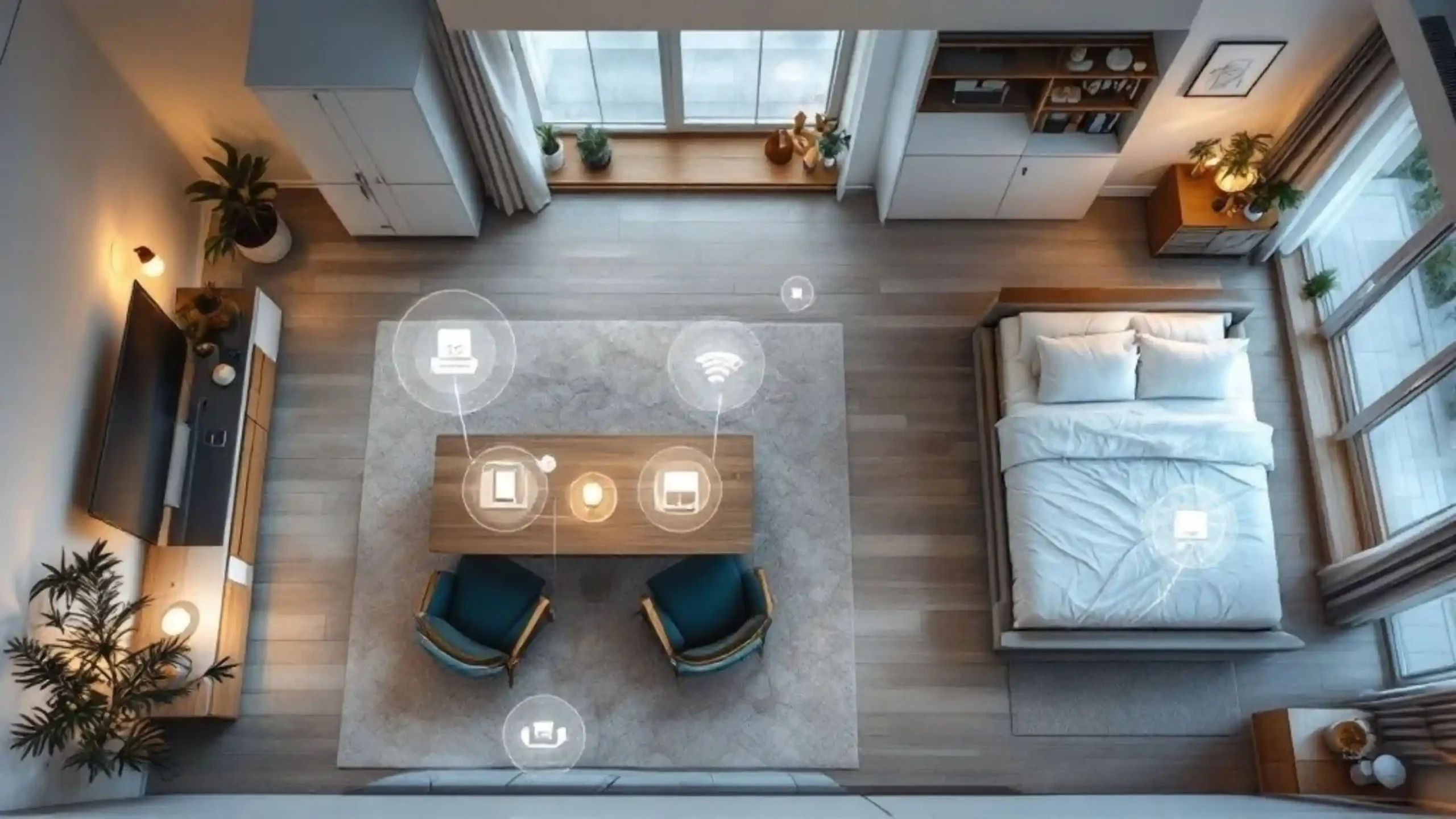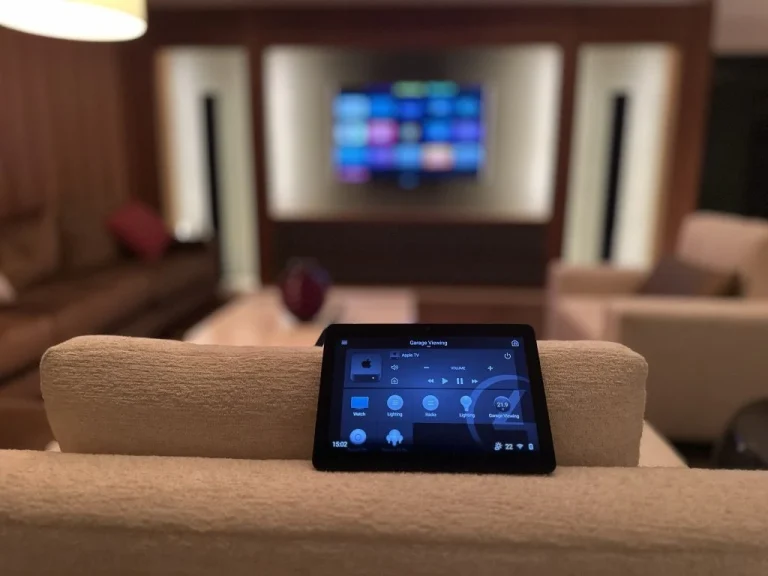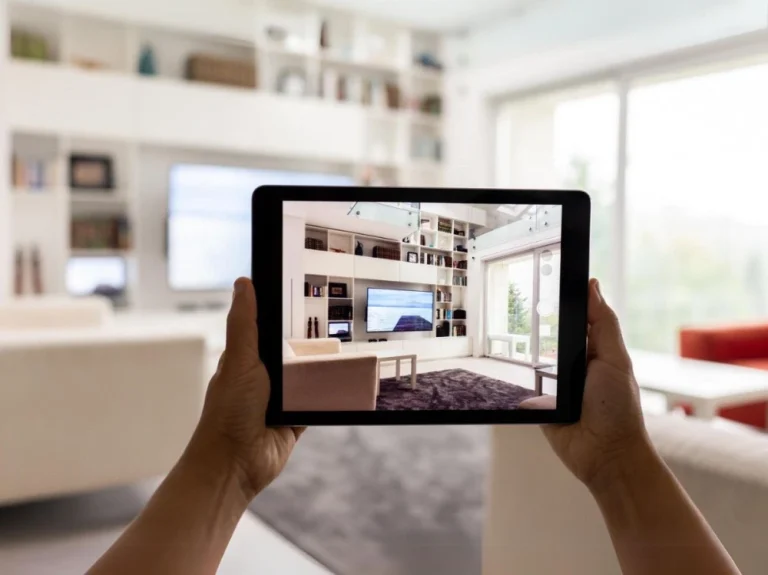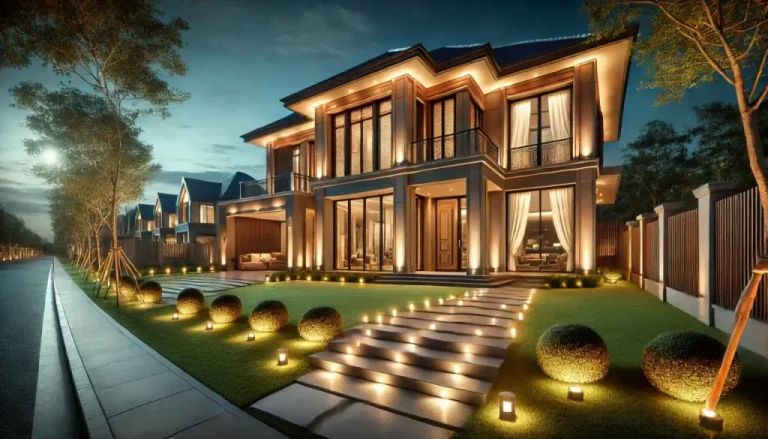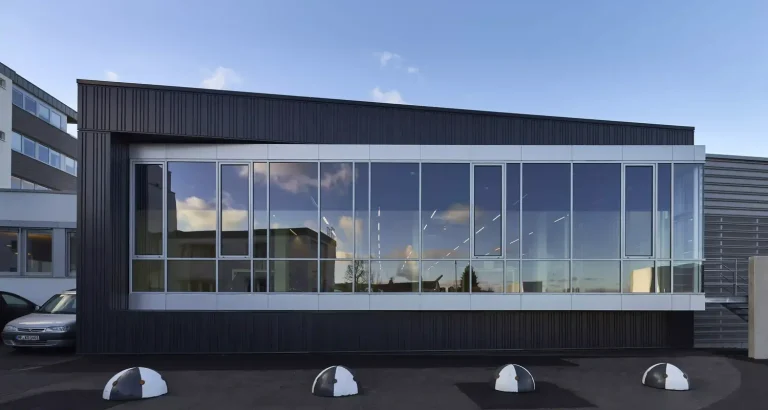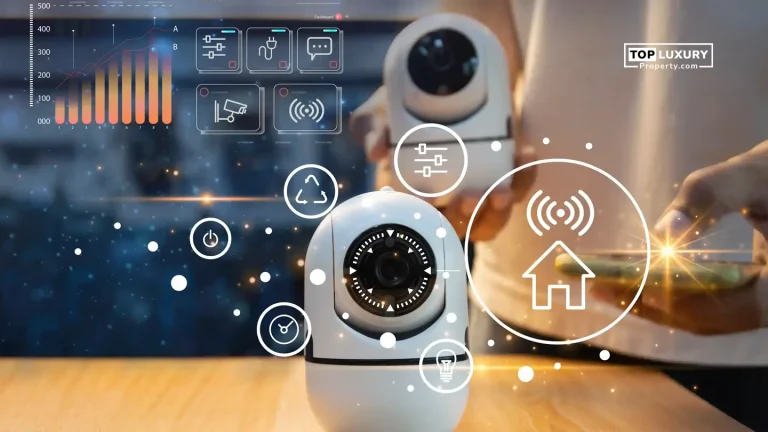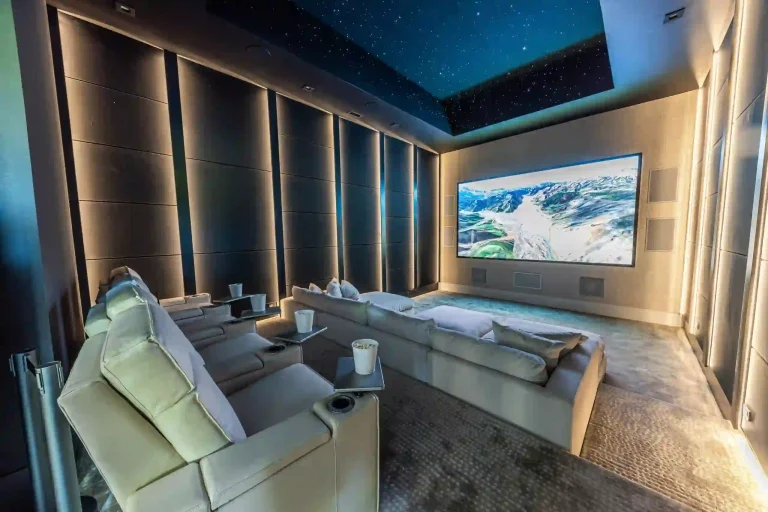Certified Home Automation Integrator for Luxury Developments – Smart Luxury Technology Design & Integration
Certified Home Automation Integrator for Luxury Developments
Why Luxury Developments Require Certified Automation Experts
In today’s high-end property market, luxury means more than elegant finishes. It’s about intelligent spaces that anticipate your lifestyle. Whether it’s synchronized lighting, temperature, entertainment, or security, all of these systems must work flawlessly together. That’s where a certified home automation integrator becomes essential.
These professionals don’t just install gadgets; they design, engineer, and manage complex networks of smart technology. For developers, partnering with a certified integrator means every villa, penthouse, or estate delivers a polished, reliable, and truly modern living experience.
What a Certified Home Automation Integrator Does
A certified integrator is officially trained and accredited by major automation brands such as Crestron, Control4, Lutron, KNX, or Savant. Their certification means they’ve passed rigorous technical standards and are qualified to design, install, and program advanced systems.
A certified integrator provides:
-
Professional system design and engineering blueprints
-
Seamless integration of lighting, HVAC, security, shading, and entertainment
-
Network configuration that supports heavy automation loads
-
Custom programming for smart scenes and daily automation
-
Maintenance and long-term system support
In short, they ensure that luxury homes aren’t just smart, they’re intelligent, stable, and beautiful.
Risks of Hiring Non-Certified Installers
Using uncertified installers may seem cost-effective at first, but it can create major headaches later. Common problems include:
- Systems that don’t communicate properly (lighting not syncing with HVAC or blinds)
- Poor Wi-Fi and network coverage are causing device disconnections
- Security vulnerabilities from unverified equipment
- No long-term support or warranty coverage
- Difficult future upgrades
For luxury developments, these issues can reduce both property value and buyer confidence. A certified integrator avoids these problems by following approved industry standards.
How Certified Integrators Design Smart Systems
Certified automation specialists follow a proven process to ensure luxury properties run smoothly from day one.
Discovery and Planning
The process begins with understanding the project vision. The integrator collaborates with developers, architects, and designers to define key goals:
-
What systems need automation – lighting, AV, climate, security, or shading?
-
How do residents want to control them – touch panels, mobile apps, or voice?
-
What design aesthetic should the system match – minimalist or statement style?
Every detail is discussed to create a system that blends seamlessly with the architecture.
System Engineering and Architecture
Once requirements are defined, the integrator designs the system architecture. This includes:
-
Network layout and bandwidth allocation
-
Low-voltage and high-voltage power design
-
Control protocols (IP, Zigbee, KNX, etc.)
-
Backup and redundancy planning
The design ensures stability, high performance, and scalability for future expansion.
Installation and Commissioning
Installation is executed by certified technicians who:
-
Install control panels, sensors, and cabling
-
Integrate third-party systems (audio, blinds, HVAC)
-
Program automation “scenes” and test system performance
-
Ensure the user interface is intuitive and responsive
Commissioning is the most critical stage it ensures every subsystem communicates perfectly and runs error-free.
Client Training and Ongoing Support
After installation, the integrator provides complete training to homeowners or facility staff. This includes walkthroughs, documentation, and ongoing maintenance options.
For luxury developments, continuous support ensures every system remains reliable and up to date for years.
Key Benefits of Hiring a Certified Home Automation Integrator
Seamless User Experience
Certified integrators deliver systems that feel natural to use. Homeowners can control everything from lighting and entertainment to temperature and blinds through a single app or touch panel. Preset “scenes” such as Morning, Movie Night, or Away Mode provide effortless control with one tap.
Higher Property Value
Smart homes designed by certified professionals command higher resale and rental values. They attract discerning buyers who expect reliable automation and elegant interfaces. Developers also benefit from faster sales cycles, as technology-driven homes stand out in premium markets.
Energy Efficiency and Sustainability
A well-engineered automation system optimizes energy use automatically. It adjusts lighting, temperature, and shading based on occupancy and daylight. Over time, this reduces operational costs and supports sustainable, eco-luxury credentials.
Scalability and Future-Proof Design
Certified systems are built on open standards, allowing easy expansion. Whether adding EV chargers, new security zones, or upgraded audio systems, developers can scale the infrastructure without complete rewiring.
Professional Warranty and Support
Certification gives access to official manufacturer support, firmware updates, and extended warranties. It also ensures that system components remain compatible as technology evolves.
Real-World Product
Below are five products commonly used by certified integrators in luxury developments. Each example highlights features, use cases, and benefits.
1. Smart Home 5-Inch Touchscreen In-Wall Panel
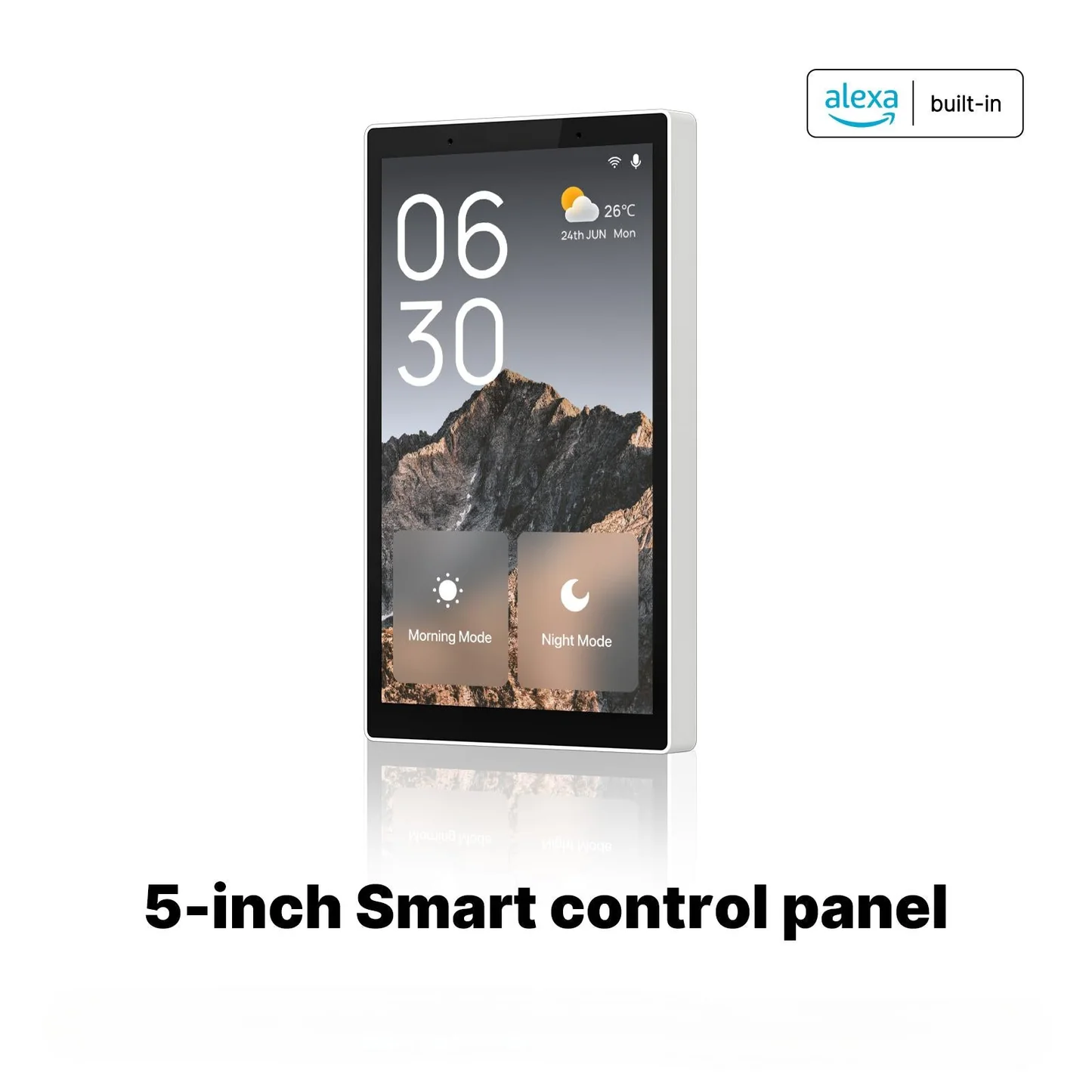
This sleek, flush-mounted panel offers built-in Amazon Alexa voice control and intuitive management of lighting, temperature, and entertainment systems.
Key Features:
-
Elegant 5-inch touchscreen for room-by-room control
-
Supports customizable scenes and status feedback
-
Wall-mounted for immediate access, no need to unlock a phone
Why It’s Beneficial:
In luxury homes, a wall-mounted control point offers convenience for residents and guests. It adds permanence, style, and functionality while ensuring easy access to smart features.
Buy Smart Home 5-Inch Touchscreen In-Wall Panel
2. SONOFF NSPanel Pro
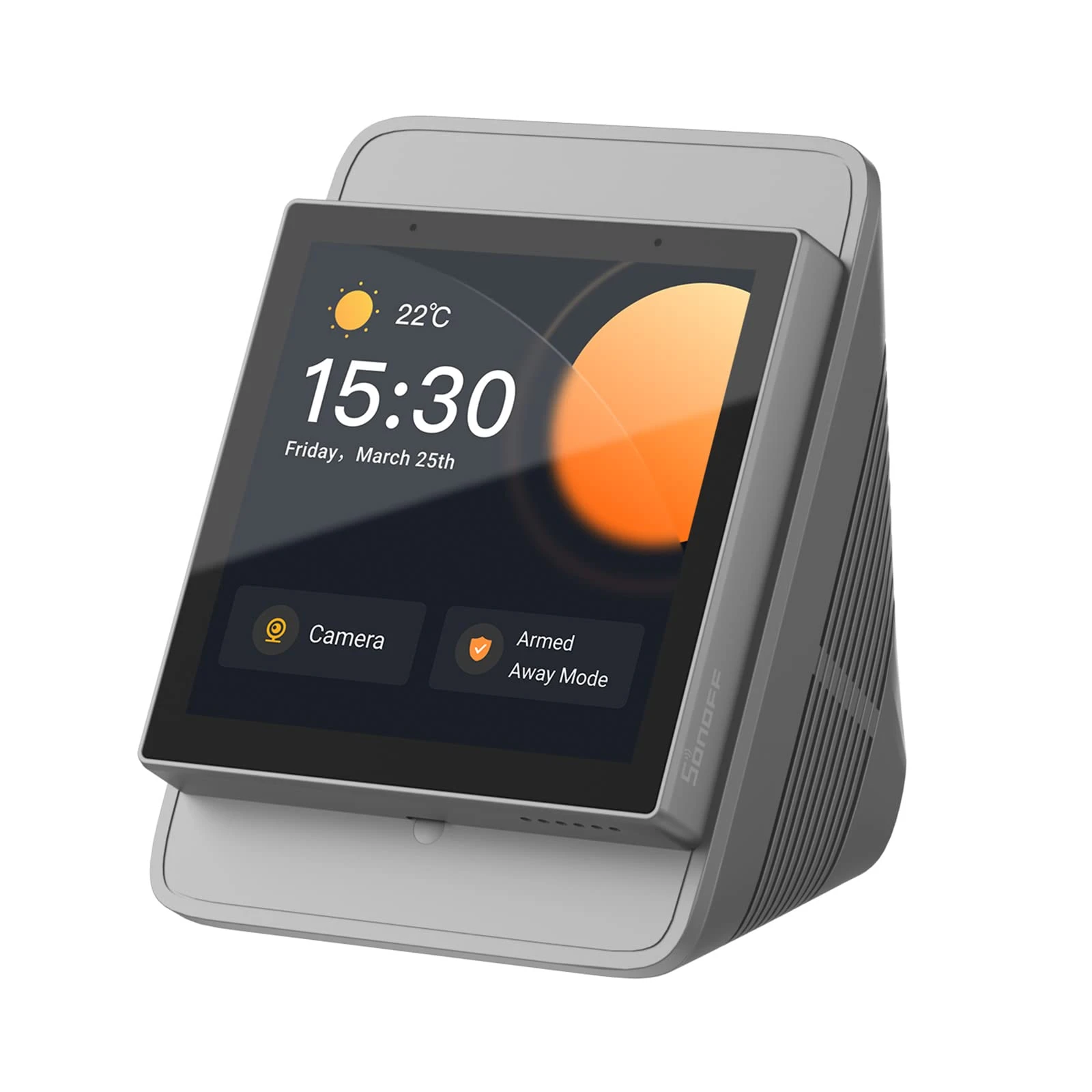
This central control hub supports Wi-Fi, Ethernet, and Zigbee. It unifies multiple smart devices into one intuitive dashboard.
Key Features:
-
Controls lighting, climate, and security sensors
-
Real-time data display and automation triggers
-
Bridge between smart home protocols
Why It’s Beneficial:
Luxury developments often mix technologies. The NSPanel Pro acts as a translator, ensuring seamless communication between systems and offering an elegant central interface.
3. Sensibo Air Pro
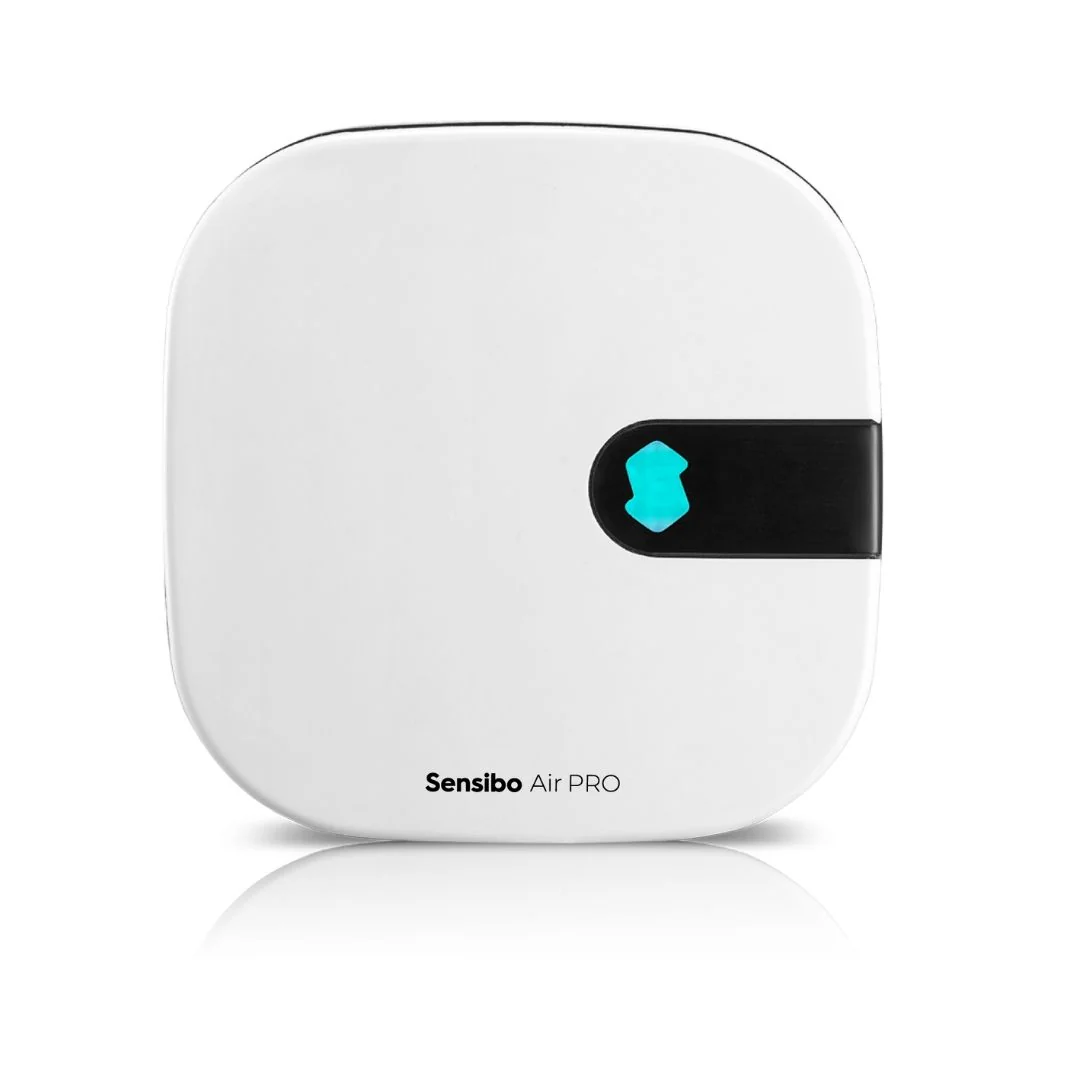
The Sensibo Air Pro converts any traditional AC into a smart, energy-efficient system.
Key Features:
-
Works with existing air conditioners
-
Offers geofencing and real-time air quality monitoring
-
Connects to automation platforms like Alexa and Google Home
Why It’s Beneficial:
Luxury estates often use multi-zone air conditioning. Sensibo ensures precise climate control and energy optimization, providing comfort while lowering electricity costs.
4. Bardi On/Off Breaker Wireless IoT
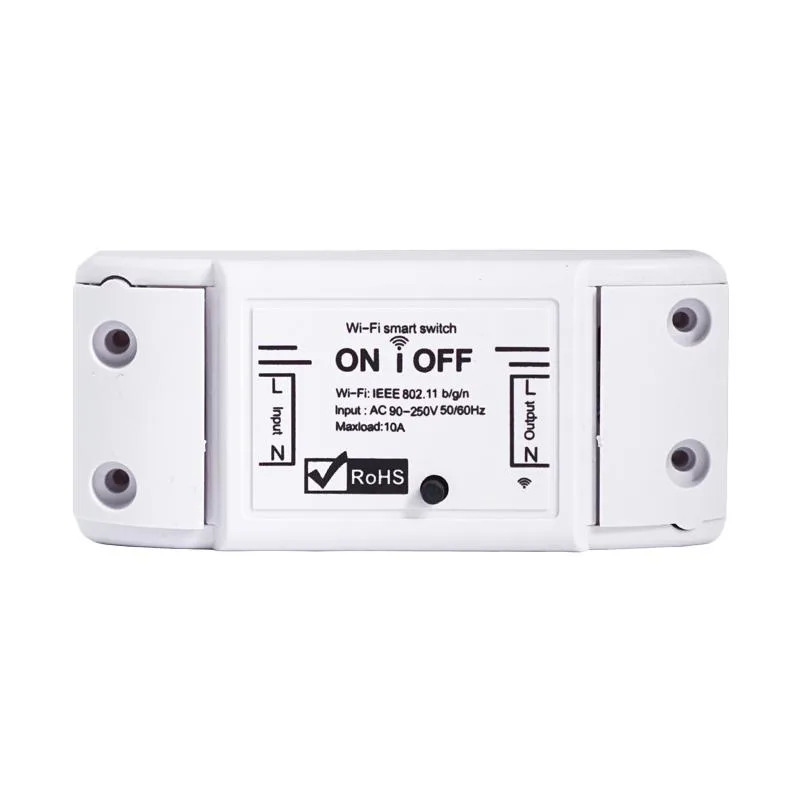
This smart circuit breaker enables remote power control for heavy loads like pool pumps or water heaters.
Key Features:
-
Remote circuit activation and energy monitoring
-
Integrates with automation scenes
-
Prevents overload and enhances safety
Why It’s Beneficial:
Large properties often have multiple high-consumption systems. Centralized breaker control enhances safety, energy efficiency, and peace of mind.
Buy Bardi On/Off Breaker Wireless IoT
5. Modern Touch-Screen Home Automation Kit
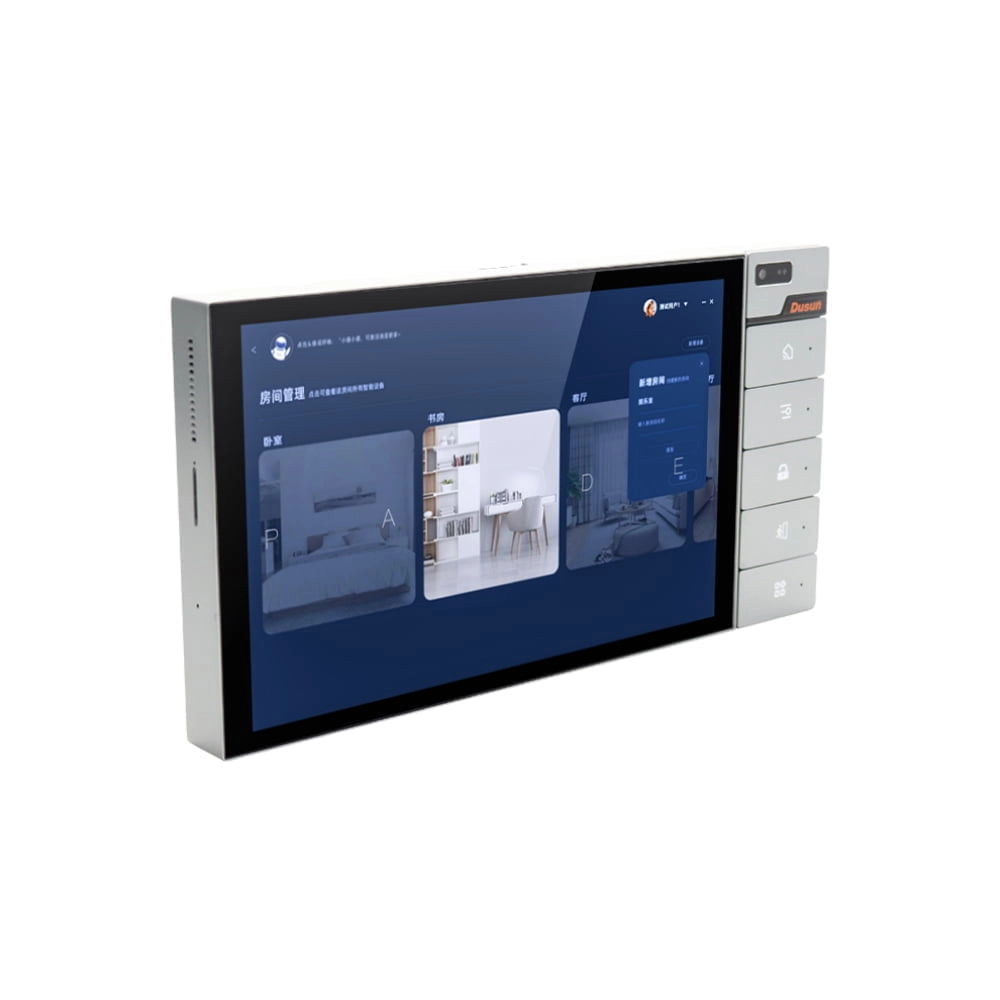
An all-in-one modular kit ideal for show homes and initial system demonstrations.
Key Features:
-
Includes sensors, control hub, and user interface
-
Expandable and customizable for future additions
-
Quick setup for model or sales units
Why It’s Beneficial:
Developers can use it to demonstrate the full potential of smart living to clients. It helps visualize automation’s value and enhances the marketing experience.
Buy Modern Touch-Screen Home Automation Kit
Use Cases: How Certified Integrators Solve Real Problems
Multi-Unit Luxury Condominium
Challenge: Each unit requires customization, but all share a central infrastructure.
Solution: Certified integrators design a shared core network with individual unit segmentation, ensuring privacy, stability, and flexible customization.
Result: Residents enjoy personalized automation while management maintains easy oversight and support.
Luxury Villa with Multiple Buildings
Challenge: Large estates often have multiple structures main villa, pool house, and guest villa, all needing synchronized control.
Solution: Integrators connect each zone under one control platform. Scenes like Outdoor Dinner or Pool Party trigger coordinated lighting, music, and temperature adjustments.
Result: Effortless control across expansive properties.
Model Homes and Show Units
Challenge: Developers need to demonstrate smart technology in show homes without permanent installations.
Solution: Modular systems such as the Modern Touch-Screen Kit allow portable setups that showcase lighting, audio, and shading scenes.
Result: Buyers can experience automation first-hand, boosting sales potential.
How to Buy and Work with Certified Integrators
Step 1: Select a Certified Partner
Look for integrators certified by Crestron, Control4, Lutron, or KNX. Check their past luxury projects, references, and client feedback.
Step 2: Approve Design and Budget
Work together to finalize plans, system layout, and interface preferences. Ensure the design matches both technical and aesthetic goals.
Step 3: Purchase and Installation
Once approved, the integrator will source official components from authorized distributors. You can also purchase user-facing devices directly from trusted retailers:
Step 4: Commissioning and Training
The integrator programs, tests, and calibrates every component, then trains staff and homeowners for daily use.
Frequently Asked Questions
Q1. Is hiring a certified integrator more expensive?
Initially, yes, but it saves money long-term. You avoid rework, system downtime, and warranty issues while increasing your property’s market value.
Q2. Can an existing home be automated later?
Yes. Certified integrators can retrofit systems, upgrade wiring, and integrate smart controls without major construction.
Q3. How long does a full integration take?
For single homes, around 4–8 weeks. For multi-unit developments, implementation is typically phased over several months with structured timelines.
